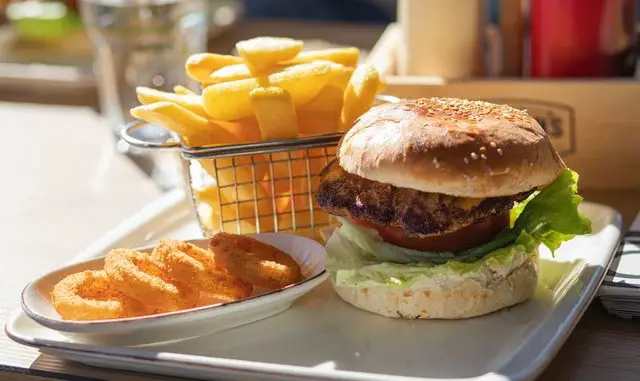
Here are some tips on what foods to avoid with gallbladder problems. The gallbladder is located right beneath the liver. This organ reaches the size of nearly eight centimeters (in adult persons) and it can store nearly fifty milliliters of bile. When you eat some fatty foods, the gallbladder will contract to release the bile into your intestines, and the fats from food will be broken down. Bile is composed of water, some pigments, cholesterol, and some salts. This fluid is dark yellow (brownish) or greenish and has a bitter taste. If the bile is not properly released by the gallbladder, certain problems can occur. The most common problem with the gallbladder is related to gallstones.
Gallstones are usually composed of cholesterol, some pigments, and salts. Depending on the composition, size, and color, gallstones can be divided into three groups: cholesterol stones, mixed stones, and pigment stones.
Gallstones can be small particles, or they can be very large. Larger stones are the ones that cause complications. A gallstone can get stuck in the cystic duct and the bile can build up in the gallbladder, causing calcification of gallbladder walls, gallbladder inflammation, and other problems. Even gallbladder cancer can develop, although this condition is very rare.
Small stones usually show no symptoms at all, but the bigger ones can cause:
- Abdominal pain
- Belching
- Abdominal discomfort
- Jaundice
- Bloating
- Mild fever
- Nausea
- Vomiting
These symptoms are seen in other types of disorders (some of which are not related to the gallbladder), so it is important to visit your doctor and see what exactly is wrong.
Many people do not even think about gallbladder health; we tend to forget about the importance of this small organ. The gallbladder is not a vital organ (unlike the liver, kidneys, or heart), but it is still very important. If you experience any of the symptoms mentioned above, do not ignore them! Most gallbladder problems can be treated, but only if diagnosed early. Otherwise, these problems can get complicated, and sometimes they can be lethal (gallbladder cancer).
Gallstones can be caused by various factors, such as genetics, gender, and age. Being overweight can also put you at greater risk of developing gallstones. Diet seems to play a role as well.
Obese people should lose some weight – but this weight loss has to be gradual. Rapid weight loss can cause gallstones. There are various diet plans out there, but if you want to do this right, you must talk to your doctor. If you lose weight quickly, this can disrupt the natural balance of bile salts and cholesterol, and cholesterol can get crystallized, forming gallstones.
Gallbladder Diet and Foods to Avoid
If you have gallstones or any other gallbladder-related problem, you should talk to your doctor about the foods to avoid. Even if you don’t have gallstones, but you do have a family history of gallstones, you must pay attention to what you eat. Here are several suggestions:
Foods that are low in cholesterol and fats are good for you.
- Vegetables
- Fresh fruits
- Lean meat
- Non-fat milk products
- Whole grains
- Brown rice
What Foods to Avoid
- Foods that contain saturated fats
- Fatty meat
- Fatty dairy products
- Fried foods
- Butter
- Margarine
- Foods that contain hydrogenated oil
- Processed foods (pies, doughnuts)
Avoiding these foods will not help you eliminate the gallstones that already exist in your body, but it will certainly help you avoid the new ones. Talk to your doctor about other things you can do to keep your gallbladder healthy.


Leave a Reply